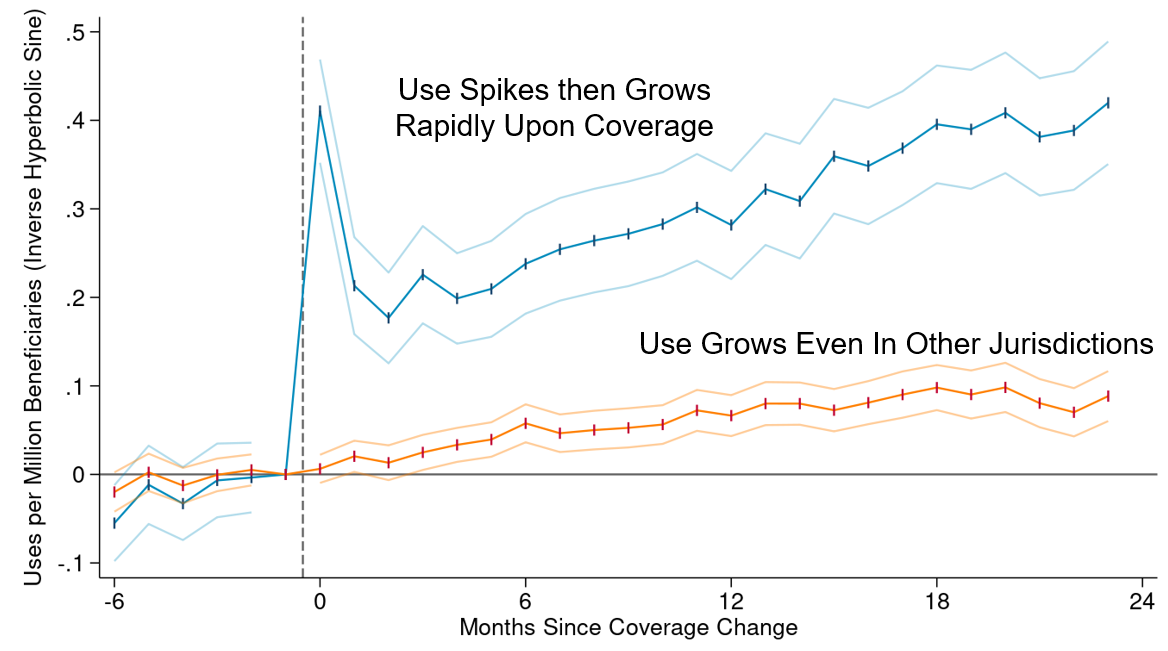Regulation and Diffusion of Innovation Under Information Spillovers: The Case of New Medical Procedures
Working Paper
Working paper available here. BibTeX citation available here.
Abstract: Innovations often have uncertain value, forcing policymakers to balance the potential benefits of promoting effective innovations against the costs of encouraging ineffective ones. This tradeoff is complicated when wider adoption of the innovation reveals information about its effectiveness. I study this tradeoff for new medical procedures, where Medicare contractors set geographically varying coverage rules. First, I show these rules impact provider adoption decisions. I then present evidence of information spillovers consistent with social learning from providers’ experiences. Finally, I estimate a structural model of provider learning to evaluate Medicare coverage policy, finding expanded coverage would yield large welfare gains.

